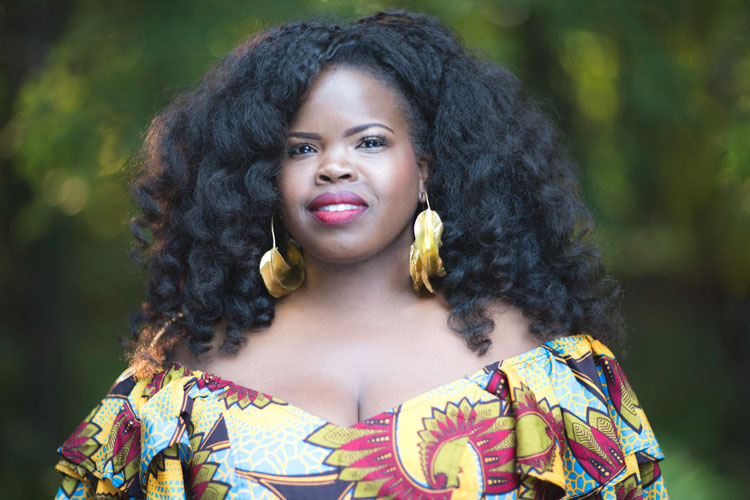From courtroom to concert stage, this criminal defense lawyer uses her voice to push for reform

Danielle Ponder: “For me, writing opening and closing statements is like writing a song. There’s a chorus in there that the jury is going to be repeating, and you need to have a good hook.” Photo by Devon Mack.
When Danielle Ponder was 16, two things happened that set her on her life’s course: Her dad gave her a guitar and her older brother went to prison. She grew up to become a criminal defense attorney and an internationally recognized singer-songwriter. Her performances address racial injustice, discrimination and the importance of criminal justice reform.
Together with her band, Danielle Ponder and the Tomorrow People, the Rochester, New York-based solo practitioner has toured the United States and Europe. In every show, she treats audiences to her signature soulful beat layered with lyrics inspired by the five years she spent as a public defender representing some of her city’s poorest citizens.
You are known for your artful combination of law and music. The connection is clear in your song lyrics, but how does music play into your criminal defense practice?
For me, it’s about the art of storytelling. As a lawyer, you are telling your client’s story, and you have to do it in a way where the jury can feel it. A good singer can make you feel something in your bones. That’s what you want a jury to do, too—to say, “Yes, girl, I feel you!”
For me, writing opening and closing statements is like writing a song. There’s a chorus in there that the jury is going to be repeating, and you need to have a good hook. In one of my cases, the victim lied on the stand, saying he didn’t have a criminal record and that he’s never used the N-word. I had all the paperwork showing he’d been previously convicted of harassment and had used a racial slur. In my closing, I said, “If you don’t take accountability, you don’t have credibility.” That was the chorus of the closing—no accountability, no credibility. My client was acquitted.
You left the PD’s office in May and opened a solo practice so that you could have more control over your schedule and devote more time to music. How’s the transition been?
It’s been different. In the beginning, I was like, “This is amazing! I can get up and do yoga and have tea and go for a walk!” But after two weeks, I was like, “Uhhh … .” I miss having colleagues; I miss having the support of my office; and I miss my clients. When you go to court and a client tells you thank you, or you talk to a frantic client on the phone and they feel better at the end of the conversation, those moments make you feel good. I still feel very much like a public defender. I haven’t figured out this new life yet.
Was there a specific turning point where you knew you had to make the change?
It was gradual. Everything in my life started leaning toward music. Every weekend I was either on stage or in the studio. Crowds of people were coming to see us. It didn’t feel like a side hustle anymore—I realized I had the potential to make an income from music, and it became clear that this was my purpose. But I grew up poor, and I always thought, “I need to have a check from somewhere.” I can’t do the starving artist thing!
I don’t blame you! Now that you’re an established performer, have you ever been tempted to think, “I should have just skipped law school and gone directly into music?”
No, I needed to be inside the system in order to come out of the system and bear witness. I am 100 percent certain that what I saw at the PD’s office had to be part of my musical journey, so I can say, “This is what’s happening,” and say it in a way that people can feel it, to say it as an artist. And I needed to learn the skill set to make my music business lucrative.
My dad was an entrepreneur, and there were years when we were going to Disney World and years where we struggled to keep the lights on. The instability always scared me. Now I can have a solo practice and do music. I also work as an adjunct professor and professional speaker.
This article was published in the October 2018 ABA Journal magazine with the title “The Sound of Justice.”



